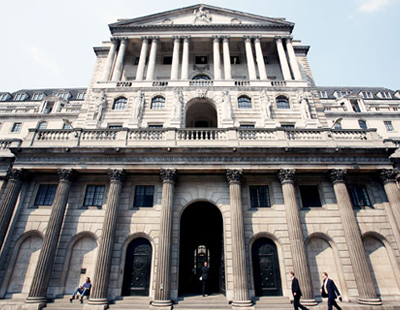The Bank of England has announced an emergency cut in the base interest rate to shore up the economy during the Coronavirus crisis.
The cut, from 0.75 per cent to 0.25 per cent, was announced at 7am this morning; it takes borrowing costs back down to the lowest level in history, and may help agents and the housing market following reports of reduced demand and buyers pulling out of viewings.
Interest rate changes are usually announced only on Thursday's after regular meetings of the Bank's monetary policy committee; this morning's shock announcement suggests that the indicators guiding the MPC - including ones relating to the housing market - have shown significant falls even at this early stage of the virus outbreak in the UK.
The Bank has also agreed a new short term funding scheme to help small and medium sized businesses.
Meanwhile today's the day when rookie Chancellor Rishi Sunak reveals his first Budget, with huge expectation that he will honour his party’s commitments to reform stamp duty - another measure which, if implemented, could help the housing market.
During Boris Johnson’s leadership campaign last summer and ahead of the General Election campaign in the winter there were pledges to reform stamp duty which was recognised as being a constraint on the housing market, especially in London.
Although today’s Budget is expected to be dominated by measures to help businesses face down the threat of Coronavirus, there is opportunity for Sunak to honour his party’s commitments over SDLT.
In recent days the pressure has been ramped up further.
“It’s time for the Chancellor to turn his attention to the core housing market and review the price bands and five per cent stamp duty rate that covers averaged priced homes across large parts of London and the commuter belt” notes Richard Donnell, head of insight and strategy at Zoopla.
“No government wants to cut taxes indiscriminately, particularly when losses could be high. However, any cut to the rate of stamp duty could stimulate much-needed marketed activity in southern England in particular. More housing liquidity supports home moves up and down the market and will boost labour mobility, ease pressure on transport and stimulate spending that can benefit the wider economy.
“At a national level, figures show that price growth since 2015 has pushed 2.7m homes into the five per cent SDLT band for property valued at £250,000 to £925,000. With UK house moves stagnating at one million annually and SDLT costs adding to the expense of a property transaction, the government needs to look at ways to keep Britain moving.”
Jeremy Leaf, a north London estate agent and a former RICS residential chairman, adds that the most important housing industry message for the Chancellor was to “do nothing to compromise the already relatively low level of transactions, and as much as [he] can to increase them, particularly for first-time buyers”.
Developers have also waded in to the campaign for reform.
“[Reforming stamp duty] would not only encourage people to move to the right accommodation, it would also encourage the building of new types of housing from retirement communities to bungalows” explains John Tonkiss, chief executive of retirement developer McCarthy & Stone.
He says a recent YouGov survey found that 33 per cent of older people would be interested in moving if the right options were available. More than half agree that stamp duty is putting older people off moving. And some 56 per cent feel that encouraging people to downsize with a stamp duty exemption would be beneficial to young people.
About the only sure-fire stamp duty change to be announced today is expected to be confirmation of a three per cent stamp duty surcharge on the purchase of homes by non-UK tax residents.
The new surcharge - strongly hinted at by the government for many months - would be on top of existing stamp duty on a property, and on top of the current three per cent additional homes surcharge.
Neil Cobbold, chief sales officer at PayProp, explains: "This additional tax will be welcomed by domestic investors who may see competition from their overseas counterparts diminish over the coming months,
"It is likely to have the biggest effect in the capital, where the government estimates that one in eight new London homes were bought by non-UK residents between 2014 and 2016.
"The surcharge was previously mooted at one per cent but its increase to three per cent will certainly act as a deterrent. Tenants in large English cities could suffer in the long-term if the additional tax burden leads to a fall in overseas investors and subsequently the number of rental properties available.”
The Chancellor delivers his Budget at around 12.30pm; Estate Agent Today will cover any announcement related to agents and the housing market.






/RishiSunak-400x310.jpg)









%20A%20property%20tale%20for%20our%20times.png)








Join the conversation
Be the first to comment (please use the comment box below)
Please login to comment